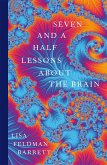To scientists engaged in research on the cellular mechanisms in the mammalian brain, concepts of "motivation" seem to be a logical neces sity, even if they are not fashionable. Immersed in the detailed, time consuming research required to deal with mammalian nerve cells, we usually pay scant attention to the more global brain -behavior questions that have arisen from decades of biological and psychological studies. We felt it was time to confront these issues-namely, how far has neuro biological investigation come in uncovering mechanisms by which moti vational signals influence behavior? At Rockefeller University, we have recently held a course on this subject. We restricted our treatment to those motivational systems most tractable to physiological approaches, and invited scientists skilled in both behavioral issues and physiological techniques to participate. This volume results from that course. The deans and administration at Rockefeller University provided much help in planning the course, and the staff of Springer-Verlag assisted in planning the book. Gabriele Zummer helped organize both the course and the processing of book chapters. They all deserve our thanks. December 1981 Donald W. Pfaff Professor of Neurobiology and Behavior Rockefeller University Contents Part One: Concepts. . . . . . . . . . . . . . . . . . . . . . . . . . . . . . . . . . . 1 Chapter 1 Donald W. Pfaff Motivational Concepts: Definitions and Distinctions . . . . . . . . . . 3 Motivation: A Brief Review of Concepts. . . . . . . . . . . . . . . . . . . . . . . . . . 5 Drive . . . . . . . . . . . . . . . . . . . . . . . . . . . . . . . . . . . . . . . . . . . . . . . . . . . . . . . . . . 10 Reinforcement, Reward . . . . . . . . . . . . . . . . . . . . . . . . . . . . . . . . . . . . .. . . . 13 Incentive . . . . . . . . . . . . . . . . . . . . . . . . . . . . . . . . . . . . . . . . . . . . . . . . . . . . . . 16 Arousal . . . . . . . . . . . . . . . . . . . . . . . . . . . . .. . . . . . . . . . . . . . . . . . . . . . . . . . 17 Emotion . . . . . . . . . . . . . . . . . . . . . . . . . . . . . . . . . . . . . . . . . . . . . . . . . . . . . . . 18 Motivation Is a Unitary Behavioral Concept with Multiple Neurophysiological Mechanisms. . . . . . . . . . . . . . . . . . . . . . . . . . . . . . . . . 20 References . . . . . . . . . . . . . . . . . . . . . . . . . . . . . . . . . . . . . . . . . . . . . . . . . . . . . 22 Chapter 2 Alan N.
Hinweis: Dieser Artikel kann nur an eine deutsche Lieferadresse ausgeliefert werden.
Hinweis: Dieser Artikel kann nur an eine deutsche Lieferadresse ausgeliefert werden.








